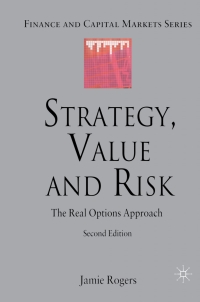Question
Accounts Payable $ 60,000 Nathan New, Capital $ 241,800 Accounts Receivable 110,000 Nathan New, Withdrawals 50,000 Accumulated Amortization, Furniture 80,000 Purchases 1,200,000 Bank Loan, Long
| Accounts Payable | $ 60,000 | Nathan New, Capital | $ 241,800 |
| Accounts Receivable | 110,000 | Nathan New, Withdrawals | 50,000 |
| Accumulated Amortization, Furniture | 80,000 | Purchases | 1,200,000 |
| Bank Loan, Long Term | 130,000 | Salary Payable | 15,000 |
| Cash | 20,000 | Sales Discounts | 30,000 |
| Furniture | 320,000 | Sales Returns & Allowances | 40,000 |
| General Expenses | 200,000 | Sales Revenue | 2,000,000 |
| Interest Expense | 8,000 | Selling Expenses | 400,000 |
| Interest Payable | 1,000 | Supplies | 20,000 |
| Interest Revenue | 200 | Unearned Sales Revenue | 10,000 |
| Inventory, July 31, 2017 | 140,000 |
|
|
Required:
- Prepare a single-step income statement for Nothing New at July 31, 2018 year end. Inventory was valued at $ 200,000 at July 31, 2018 based on a physical count.
- Prepare the statement of owners equity for Nothing New at July 31, 2018.
- Prepare a classified balance sheet for Nothing New at July 31, 2018.
Question 2
(20 marks)
Required:
- Use the data from Question 1 to prepare a multi-step income statement for Nothing New at July 31, 2018 year end.
- Owner, Nathan New, tries to achieve a gross margin of at least 40% and a net income of at least 15%. Keeping in mind that net income percentage is equal to net income/net sales revenue, has Nathan New achieved those results?
Question 3
(25 marks)
Toy Store and Toy Warehouse incurred the following transactions in November 2018:
- November 05: Toy Warehouse sold $ 75,000 toys to Toy Store. The sale had credit terms 2/10, n/30, FOB shipping.
- November 09: Toy Store returned $ 10,000 toys that it purchased on November 05. Toy Store received a credit memo for this.
- November 13: Toy Store paid $ 50,000 of the November 05 invoice amount that it owed to Toy Warehouse.
- November 19: Toy Store paid the remaining balance that it owed to Toy Warehouse.
Required:
- Record these transactions on the accounting records of Toy Store. Explanations are not required when recording the journal entries.
- Then, record these transactions on the accounting records of Toy Warehouse. Explanations are not required when recording the journal entries. Both businesses used the periodic inventory system. Discounts were permitted on particular payments.
Question 4
(25 marks)
Sammys Sportswear sells sport jerseys. It has a May 31, 2018 year end.
On February 28, 2018, Sammys Sportswear had in inventory of 40 jerseys that each cost $ 20. During the next 3 months, Sammys Sportswear purchased the following merchandise:
Units Unit Cost Total
March 50 $ 30 $ 1,500
April 100 $ 40 $ 4,000
May 150 $ 50 $ 7,500
During March, April, and May, Sammys Sportswear sold the following merchandise:
Units Unit Selling Price Total
March 60 $ 60 $ 3,600
April 40 $ 70 $ 2,800
May 90 $ 90 $ 8,100
Operating expenses for March, April, and May totalled $ 3,500. Sammys Sportswear used a perpetual inventory system. Assume that monthly purchases occurred on the first day of each month.
Required:
- Calculate Sammys Sportswears ending inventory at May 31, 2018 using the moving-weighted-average costing method and the FIFO costing method.
- Prepare Sammys Sportswears May 31, 2018 income statement for both the moving-weighted-average costing method and the FIFO costing method. Record the gross margin and operating income.
Step by Step Solution
There are 3 Steps involved in it
Step: 1

Get Instant Access to Expert-Tailored Solutions
See step-by-step solutions with expert insights and AI powered tools for academic success
Step: 2

Step: 3

Ace Your Homework with AI
Get the answers you need in no time with our AI-driven, step-by-step assistance
Get Started


